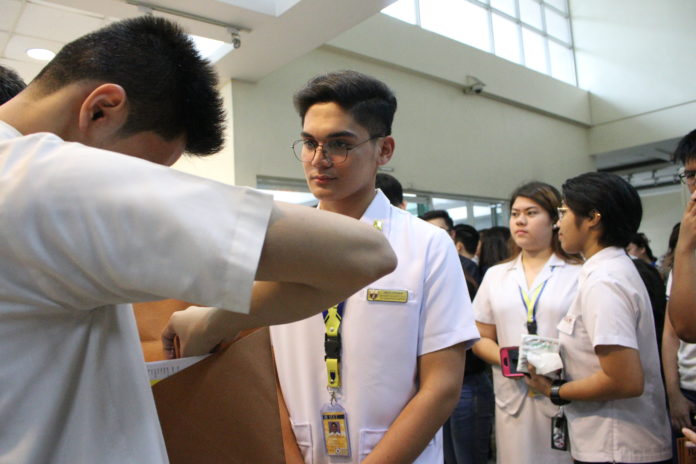FOLLOWING the unexpected results of the recent Central Student Council–Executive Board elections in which most Thomasians opted to abstain for the positions for president, vice president, treasurer and auditor, is there a need for more University-wide political parties for students to have more candidates to choose from?
Dennis Coronacion, UST Department of Political Science chairman, said students do not need more candidates or political parties for the student elections. What they need are candidates who can represent the students, he said.
“I think it is not a question of how many political parties should join the student elections. It is really a question of ‘how good’ are those parties in representing the students’ interests and adapting to the students’ new standards,” Coronacion said in an interview with the Varsitarian.
“It is useless to add more political parties if the new ones are essentially the same as the old parties that students have begun to detest,” he added.
Coronacion said politcal parties in the University should focus on producing quality student leaders who adapt to Thomasians’ standards, while Thomasians should evaluate the plans and platforms of candidates regarding issues inside the University.
“It is essential that the student voters must see what sets a candidate apart from the others. If there’s is nothing that can set them apart, then the student voters have not been given real choices,” he said.
Central Commission on Elections Chairman Arvin Bersonda echoed Coronacion, saying that adding more political parties will only reflect the system of politics in the Philippines.
“[What is] more important is for [political parties] to focus on letting the students know about their principles, ideologies and platforms,” he said in a text message.
Tanya Vasquez, chairwoman of Lakas Tomasino Coalition, contested Coronacion’s claim, saying the results of the previous election was not because of poor quality student leaders.
“I don’t think this has anything to do with how political parties train their leaders. It was just a mixture of uncontrollable circumstances,” Vasquez said.
“I believe that we have presented our ideologies well to the [Thomasians], and was actually well-received by majority of [them],” she added.
Restricting policies
Regrading Comelec policies, Vasquez said the involvement of political parties should be considered especially in scheduling the campaign period and election events.
“We would appreciate it if we were included in the planning of the election season, especially with the scheduling. In that way, maybe we could also input ideas that may help the Comelec,” she said.
Bersonda said that despite being open to the opinions and suggestions of the political parties, the scheduling of the campaign period and the Miting de Avance was solely the Comelec’s decision.
Bersonda also disagreed that the Comelec’s policies were restricting and hindering a wide range of candidates for the elections.
“The policies and requirements are there for a reason: it makes sure that the future student leaders are qualified and fit for the positions they are running for,” he said.
“It is just a way of verifying their current standing as a student and to make sure that neither the council nor the candidates’ academics are compromised,” he added.
Bersonda also reminded that “running for a position is voluntary and should be because of genuine intentions, and that is to serve the Thomasian student body.”
The Varsitarian contacted the Office of Student Affairs regarding student government policies, and Lakas ng Diwang Tomasino for comment, but they did not reply at press time.














